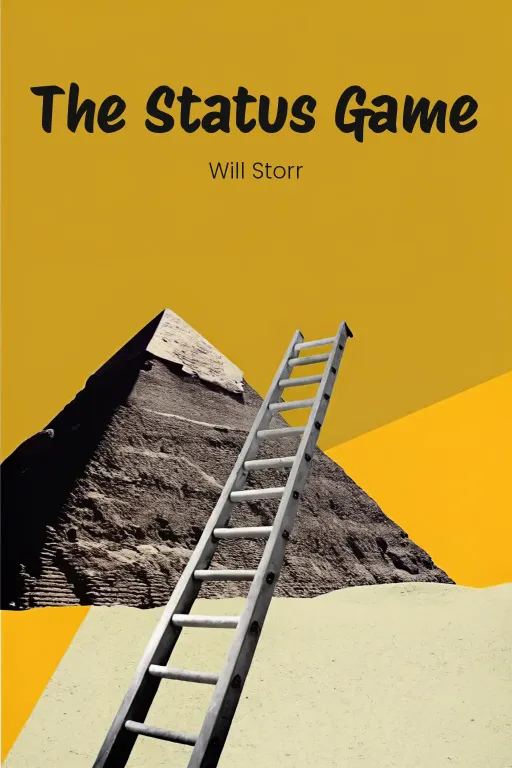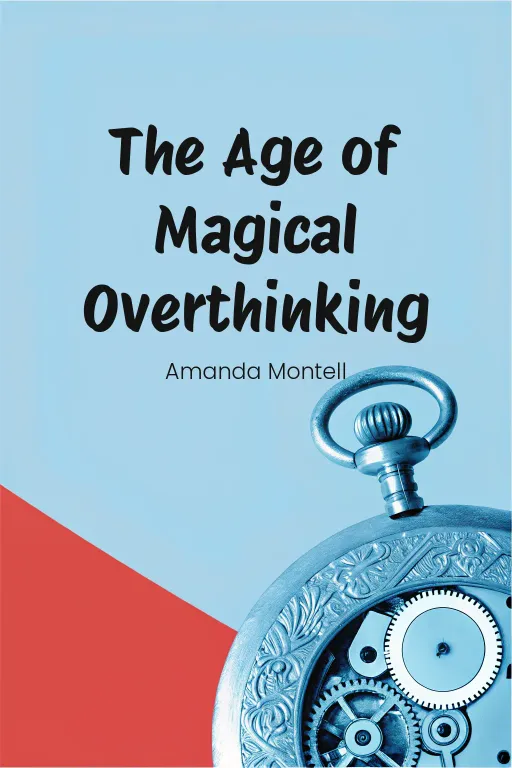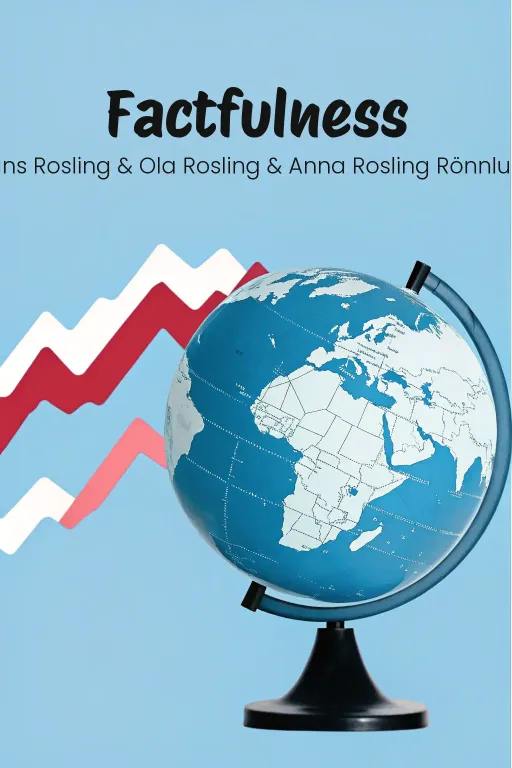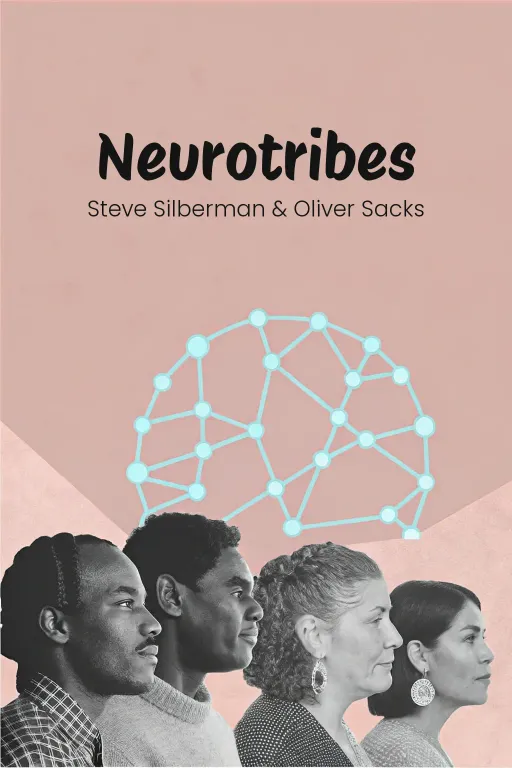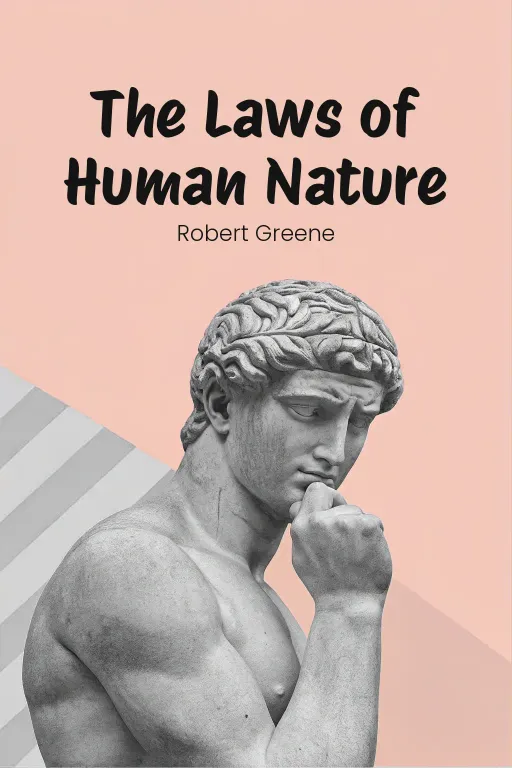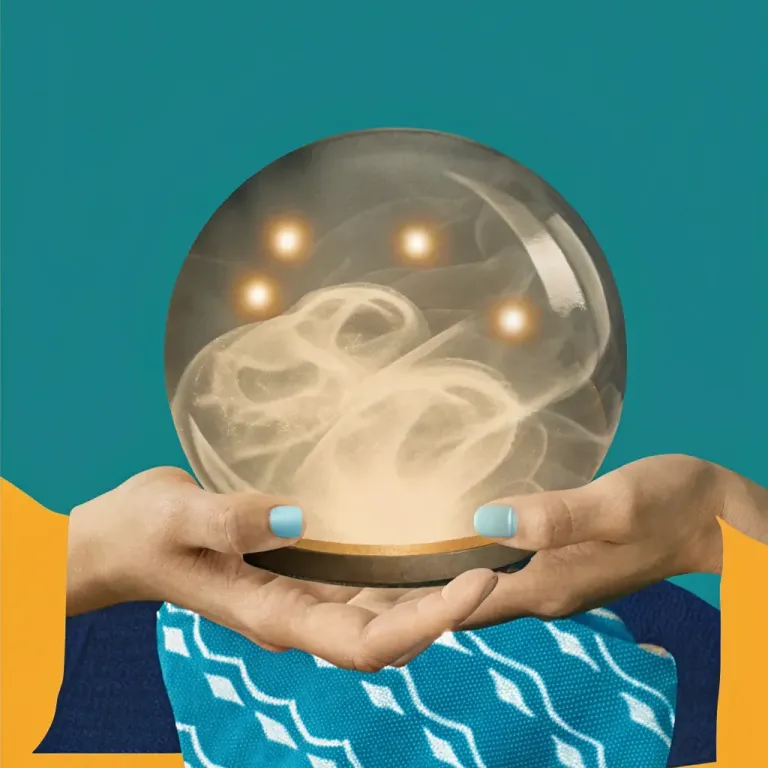
Mind Tricks: Outsmart Your Own Brain
Podcast by The Mindful Minute with Autumn and Rachel
Notes on Modern Irrationality
Mind Tricks: Outsmart Your Own Brain
Part 1
Autumn: Hey everyone, welcome! Today, we're diving into the fascinating, and sometimes unsettling, ways our minds deceive us. It “really” shapes how we think, how we connect with each other, and even what we believe is true. Spoiler alert: your brain? Not exactly the objective machine you might think it is. Rachel: Yeah, it's kind of wild when you start to realize that, isn't it? Have you ever caught yourself defending a celebrity like you personally know them? Or maybe believing some pretty out-there theory, despite all the evidence pointing the other way? Or just constantly romanticizing "the good old days"? Turns out, it might not be entirely your fault. It could just be your biases calling the shots. Autumn: Precisely! And that's “really” the core of our conversation today. We're going to be digging into a book that gives a deep look at the hidden biases and cultural trends that are “really” shaping our modern lives. It breaks down concepts like the halo effect, confirmation bias, nostalgia – showing how they trip us up as individuals, and how they create these ripple effects across society, impacting everything from our closest relationships to our social media feeds. Rachel: Okay, and here’s the fun part, or at least what I hope will be the fun part. We're not just going to point out the problems and leave it there. Today, we're tackling three big topics. First, how biases distort our everyday decisions and perceptions. Second, how social media is basically amplifying these distortions, like putting a megaphone to our worst instincts. And third, what tools – like creativity and community – can actually help us navigate this mess. Autumn: Exactly, think of it as a field guide, designed to help you outsmart your own mind. Whether we're talking conspiracy theories, celebrity worship, or just trying to figure out why your brain seems determined to sabotage you, we're breaking it all down today.
Impact of cognitive biases on modern life
Part 2
Autumn: Okay, Rachel, so we’re diving into cognitive biases, huh? First off, why do we even HAVE these things? I mean, is our brain just messing with us, or is there some logic to it? Rachel: That’s what I'm wondering. Are they just a bug in the system, or were they actually useful at some point? I mean, did our ancestors need them to survive? Autumn: Exactly! They’re not random, really. Think of them as mental shortcuts that evolved to help us make super quick decisions in a complex world. You know, back in the day, it was all about survival. If you heard something rustling in the bushes, you didn't have time to analyze probabilities; you needed to decide instantly if it was a lion or just the wind. Rachel: Okay, makes sense. So, these biases helped us not get eaten by lions. But what’s the deal now? Autumn: The problem is, in today’s world, these shortcuts often lead us astray. We're dealing with social media debates, political stuff, complicated relationships—things that aren’t life-or-death, but still trigger those ancient mental pathways. Rachel: So, we're using prehistoric instincts to navigate the digital age. Charming. Got any examples? Autumn: Definitely. A classic example is the halo effect. It’s when one awesome trait about someone makes us think they’re amazing at everything else. Like, a celebrity is great at singing, and suddenly we assume they're also kind, intelligent, and morally perfect. News flash: that's not always the case. Rachel: Ah, we're back to Taylor Swift, are we? Don't get me wrong, she's talented, but people treat her like a flawless goddess. I think calling them "stans" kind of captures that cult-like thing, right? Autumn: Exactly! And it's easy to poke fun, but it's actually fascinating from a psychological angle. A lot of fans don't just see Taylor Swift as a pop star; she becomes a projection of their ideals—like empowerment, artistry, or being authentic. The halo effect just amplifies that. Rachel: So, what happens when that halo slips? Like, she makes a political comment that people disagree with, or dates someone they don't like? Autumn: Oh, that’s when things get interesting! The same thing that creates that worship can also fuel major outrage. Fans feel betrayed when their idol messes up, because they've mixed up the musician with their personal expectations. Social media makes this way worse, turning a little disappointment into a full-blown online war. Rachel: So, our brains put people in "hero" or "villain" boxes to save time, and social media just blows it up, making it impossible for anyone to be seen as a complex human being. Got it. Autumn: Precisely. And the halo effect is everywhere, not just with celebrities. It's in our relationships, workplaces... Ever notice how we think someone who's attractive must also be super competent? That messes up how we hire people, evaluate leaders, even just how we act in the office. Rachel: Yeah, "He's tall, so he must be a great CEO." Classic. What’s next on our cognitive bias tour? Autumn: Let’s talk about proportionality bias. This one's all about how we expect big events to have big causes. If something major happens, we don’t like simple, random explanations. It just doesn't feel right. Rachel: Ah, so this is where the conspiracy theories come in, right? Lay it on me. Autumn: Exactly. One example is how people reacted to Princess Diana’s death. Technically, it was a tragic accident—a drunk driver and paparazzi. But for many, that wasn’t enough. She was so famous and important that it seemed like something bigger had to be behind it, so conspiracy theories took off. Rachel: So, we feel like there needs to be a villain big enough to match the tragedy. An accident is just... boring, while a government plot feels more epic, even if it's messed up. Autumn: Right. Same thing showed up with the Amanda Knox case. Instead of looking at the legal system's complexities and mixed evidence, people jumped to this dramatic story of her as an evil mastermind. It matched the need for a proportional, dramatic explanation. Rachel: But it’s not just about huge conspiracies, is it? The book also mentioned smaller examples, like rituals that make us feel in control. Autumn: Right, it's subtle in daily life. Think about someone who always prays before flying—even though it doesn't change the physics, it feels like they're doing something to help. It’s comforting. Or finding a $20 bill and saying it’s "karma" for helping someone earlier. Rachel: Okay, but isn’t that dangerous? If you start connecting things that aren't connected, you end up knee-deep in pseudoscience and wellness scams, blaming bad vibes for not getting a promotion. Autumn: You're not wrong. Magical thinking can be harmless or even helpful as a coping mechanism, but it’s a problem when it leads to avoiding reality or believing harmful ideas—like blaming yourself instead of systemic issues for your struggles. Rachel: Speaking of beliefs, let's talk about the king of all biases: confirmation bias. Our brain is basically a PR machine, spinning facts to fit our own narrative. Autumn: Bingo! Confirmation bias is when we actively search for information that agrees with what we already believe, and ignore anything that disagrees. It thrives in the digital age, where algorithms feed us more of what we're already consuming. Like, during the pandemic, it fueled vaccine conspiracy theories. Skeptical people fell into social media bubbles full of misinformation, reinforcing their fears. Rachel: So, the internet's just a giant echo chamber for our worst instincts. Fantastic.
Social media's role in amplifying biases and loneliness
Part 3
Autumn: Okay, so, coming from a solid understanding of biases, let's look at how they show up in today's challenges like digital culture and mental health. Rachel, the book really digs into social media's role here, saying these platforms amplify biases and make us feel even more alone. That's quite a statement, isn't it? Where do we even begin with that? Rachel: It is a huge statement, Autumn, because it's something we all experience to some degree. Social media sells us connection, but... does it really deliver? You know? I guess the book thinks otherwise. So, where do we start unpacking this? Autumn: Right. Well, I think it all start here: Social media, which promises connection, often delivers a curated disconnection instead. Let's start with survivorship bias. Rachel: Survivorship bias—sounds kind of grim. Am I right in thinking this is where we only see the highlight reel from everyone else and totally miss hearing about the messy, hard parts of their lives? Autumn: Exactly. Social media is full of the highlight reels. A classic example is health influencers dealing with chronic illnesses. You'll see these incredibly inspiring, uplifting stories, right? Stories about overcoming obstacles and staying positive. Don't get me wrong, these stories are inspiring, but they’re often only showing one side of things. Rachel: Right, they’re crafting a persona. You get the good days, the victories, the smiling selfies, but not the bad nights and the struggles it took to get there. Autumn: And that distorts our perception. People grappling with the same problems might see these "success stories" and then feel inadequate if their own journeys aren't as picture-perfect. They end up comparing their unfiltered reality to someone else’s carefully constructed image. Rachel: So the people who are supposed to feel inspired actually end up feeling alienated, because they’re thinking, “Wow, why am I not this resilient or triumphant?” Social media turns strength into yet another impossible standard to live up to. Autumn: Precisely. And the book emphasizes that this bias isn't just about individuals alone; it actually highlights some systemic problems, too. People who don't "succeed," who lack resources, or whose stories don't quite fit that whole "resilience narrative," they're often not given a platform. And their silence isn't really an indicator of their value, you know? But social media kind of erases them from the bigger picture. Rachel: And that has to feed into that feeling of loneliness that social media can create, right? You're constantly bombarded with these perfect, curated lives and start to feel like you’re the only one struggling to keep it all together. Autumn: Definitely. And to make matters worse, there's another bias at play here: the illusory truth effect. Basically, if you keep seeing or hearing something repeatedly, you might start to believe it's true, even if it’s not. And social media algorithms really play into this by constantly feeding you repetitive, often misleading content, right? Rachel: Ah, I see. This is how misinformation becomes so widespread. Like during the pandemic, those conspiracy theories about vaccines went viral because they kept popping up everywhere, right? Autumn: Exactly! The algorithms on these platforms prioritize engagement first and foremost, not accuracy. If a piece of misinformation gets a lot of clicks and shares, that it gets pushed into more people's feeds, whether or not the information is false. Over time, folks will stop questioning it. Rachel: Comfort in familiarity, even if it’s total nonsense. Got it. So, algorithms are basically weaponizing our biases and spreading around half-truths. But what's the long-term effect of that? Autumn: Well, the most obvious one is a loss of trust, right? People start to lose faith in institutions like medicine, the government, even science itself. And when you lose that trust, there nothing stopping misinformation to fill the void. Think about the anti-vaccine movement. There's so much evidence proving they're safe, but because of these repeated false claims, so many people felt scared. And that had some serious consequences, right? Rachel: Right, I remember. And this isn't just limited to health issues, right? I bet it seeps into everything else, from politics to climate change, even personal identity. Autumn: Absolutely. I mean, it becomes a vicious cycle. The longer folks stay in their own little digital echo chambers, the more their beliefs become entrenched, even if those beliefs are harmful. And as the book points out, this can lead to really big emotional disconnect, because instead of trying to understand one another, people just retreat into isolated ideological bubbles. Rachel: Okay, speaking of isolation, this loneliness thing is interesting to me. What is it about social media that makes people feel so lonely when it's supposed to connect them? Autumn: Well, there's kind of a paradox at play here, right? Social media gives us these surface-level connections, but it also emotionally disconnects us. Just think about how people create their profiles: vacation pics, career highlights, posed family gatherings... It's all about showing the best aspects of life, or even making others jealous, if you want the harsh truth. Rachel: So instead of feeling more connected, you're drowning in a sea of perfect moments that make your own life look bad in comparison, right? Autumn: Right! And younger folks are particularly vulnerable to this. Studies show that they actually link their self-worth to those digital popularity metrics like likes, shares, and comments. It turns validation into something you use to buy stuff. And when they fall short, that has a real impact on their mental health, often leading to depression, anxiety, and social isolation. Rachel: Man, so these kids are literally putting their self-esteem in the hands of an algorithm. That's rough. Autumn: It really is. And what makes it even worse is the way these platforms amplify these exclusionary practices. Online communities like ones based on specific interests or beliefs can quickly turn into echo chambers. And if you don't fit in or you offer a different perspective, you're either shut out or, worse, targeted. Rachel: Ah, kind of like tribalism on steroids, almost. “If you’re not one of us, you’re against us." It just divides people even more instead of building the understanding we’re supposedly looking for. Autumn: Exactly. Social media sells us on this idea of connection but also subtly teaches us how to exclude others and feel isolated. But – and here is the good news – the book offers ways to push back against it all. Rachel: Ooh, yeah, I like where this is going. Solutions! Tell me more, Autumn.
Counteracting biases through creativity and awareness
Part 4
Autumn: So, Rachel, that brings us to the question of how we actually push back against these biases that are messing with our perceptions and connections. How do we rise above these internal traps and the ways they get amplified in the outside world? Rachel: Alright, Autumn, lay it on me. How do we fight back against these ingrained biases that are sabotaging our lives? Autumn: Well, the book actually offers some really encouraging solutions, starting with creativity, surprisingly enough, as a way to regain control and boost our self-worth. You know about the IKEA effect, right? Rachel: Oh yeah, definitely. It's the reason why I overvalue my rickety, self-assembled bookshelf, right? But how does that relate to fighting bias? Autumn: Exactly! The idea is that we value things we create ourselves far more, even if they're not perfect. And the same applies to our mental and emotional well-being. By channeling emotional stress into creative outlets, the process becomes meaningful, and so does the outcome. The book gives this example of someone dealing with really intense anxiety by knitting. They were basically turning their racing thoughts into something tangible. Every stitch represented a tiny act of focus and control, a sort of meditative practice in the midst of chaos. Rachel: So, instead of letting anxiety take over, they grounded it in something physical, something they could touch. That's actually quite beautiful. Autumn: It is, and there's a psychological reason behind it. Research shows that creating something, even if it's imperfect, inherently boosts our self-esteem because we're emotionally invested in it. The book mentions a study where people were asked to make simple origami figures. Even though they were amateurs, they rated their own creations higher than professionally made ones. The act of creating inspires pride, even if it's not perfect. Rachel: That's great. It's like valuing the journey, not just the perfect end result, which is a nice change in a world obsessed with polished final products. But let me play devil's advocate here. Isn't this just a distraction from deeper issues? Like, sure, knitting might chill me out for a bit, but what happens when I put the needles down? Autumn: That's a valid point, but it's more than just a distraction. Creativity isn't about running away from problems, it's about reframing them into something you can actually work with. When someone creates something, even a wonky scarf or a simple doodle, it reminds them that they're capable of transforming abstract emotions into tangible results. That's empowering. It's about taking back control rather than feeling overwhelmed. Rachel: Okay, I'm sold on the creative aspect. But creativity can be a pretty personal, even solitary activity. How does this tie into broader, community-based solutions? What's the next step in breaking out of isolation? Autumn: That's where Shine Theory comes in, and it's one of my favorite concepts from the book. Instead of competing with others, this theory proposes a simple but powerful shift: consciously celebrating and supporting the success of the people around you. It challenges that toxic belief that lifting others somehow diminishes your own worth. Rachel: So, it's a direct counter to our society's obsession with zero-sum thinking. I win, you lose, or vice versa. But how does Shine Theory change the game? Autumn: The book uses an example of a creative collective. Each member was working on their own artistic projects, but they were also actively cheering each other on. One poet in the group was hesitant to share her work, but she felt encouraged when her peers celebrated her experimental writing. That trust and support gave her the confidence to take more risks, and as her peers thrived, so did she. The idea is that when one person shines, it creates an environment where everyone else can shine too. Rachel: So, instead of the usual scenario where someone's success might make others feel inadequate, it flips the script. Success becomes a shared experience. That's a nice idea, but it sounds a bit utopian. Real life is competitive, especially in workplaces or industries where there's a limited pool of resources, whether it's funding, awards, or whatever. Autumn: That's true, but Shine Theory doesn't ignore competition, it redefines it. It encourages collaboration as a way to amplify everyone's potential. Think about how much more innovative and trusting teams can be when they focus on lifting each other up instead of holding each other back. The book talks about workplaces that adopted this approach and saw real results, like higher morale, deeper trust, and a more ambitious outlook. When competition becomes cutthroat, it leads to stress and burnout. When collaboration thrives, everyone moves forward. Rachel: Makes sense. And I guess that applies beyond work too, like to friendships or other communities where building trust and respect creates a strong support system? Autumn: Exactly. It's especially important in combating biases that thrive on comparison and isolation. By creating a culture of abundance, one based on the belief that there's enough success and joy to go around, we can lessen those feelings of envy or scarcity that cause division. Rachel: Alright, Shine Theory to the rescue for collective well-being. But let's address the elephant in the room: the constant sense of urgency in modern life, which is amplified by our devices and our breakneck pace of everything. How do we even start to adjust our sense of time? Autumn: That's where mindfulness practices and awe-inspiring experiences come into play. They're not just trendy buzzwords, they're actual tools for dismantling the distorted temporal biases we live under, like the recency illusion that tricks us into thinking every immediate event is super important. Rachel: Right, the bias that turns minor annoyances into major crises simply because they just happened. So how does mindfulness help us reshape this sense of urgency? Autumn: By grounding us in the present moment. The book mentions someone who escaped the constant noise of digital distractions by retreating to the Blue Ridge Mountains. Without notifications and endless feeds, they reconnected with the natural world, with ancient trees and vast landscapes, and found clarity. That break from the modern sense of urgency allowed them to rebalance their thinking and see themselves as part of something bigger and more timeless. Rachel: Sounds idyllic, but how does that translate to our everyday lives, where we're not surrounded by mountains? We can't all go live in perpetual retreat. Autumn: True, but the principle still applies. It's about reclaiming our attention. Whether it's immersing ourselves in nature or practicing intentional mindfulness, the goal is to detach from external noise and “really” engage with the present moment. Even small interactions with nature, like a walk in the park, can lower cortisol levels, improve focus, and boost our mood. Rachel: So, it's about re-centering ourselves through external awe and internal reflection. I can see how stepping off the relentless digital treadmill could create space for clarity. But it seems like a tough sell in a society that values productivity and constant availability. Autumn: It's definitely countercultural, but the book makes a strong case for why we need to push back against the attention economy. When we resist the urge to be constantly engaged, we regain control over where we focus our attention, and that in turn helps us find emotional balance. Rachel: I like that. So, we've got a multi-pronged approach here: use creativity to reclaim our emotions, embrace Shine Theory for collective growth, and practice mindfulness and seek out awe to change how we interact with time and the world around us. Autumn: Exactly. These strategies tackle biases at their root, whether it's building personal resilience, fostering collective connection, or gaining clarity through balance. Together, they provide a powerful toolkit for navigating modern life, turning biases from obstacles into opportunities.
Conclusion
Part 5
Autumn: Okay, so, to recap, we've talked about how cognitive biases… things like the halo effect, confirmation bias, and that proportionality bias… they kind of sneak into our perceptions, mess with our relationships, and honestly, twist how we see the world. And social media? Well, it just cranks up the volume on all of that, creating this curated disconnection and echo chambers, which can leave us feeling pretty alone in a world of carefully filtered perfection. Rachel: Right, it's a bit bleak when you lay it all out like that. But the good news is, and the book reminds us of this, we're not helpless here. Things like creativity, for example, that's a tool to take back some control, turning anxieties into something real. Then there’s "Shine Theory," which is this idea that actually helping others succeed, it boosts you up too. And mindfulness, getting back to nature… those are ways to just step off the crazy digital treadmill and just find some clarity, right now. Autumn: Exactly! I think that the big take away is that simply understanding these biases is the first step. Once you're aware, you can actively work against them. Awareness is key, but the real magic happens when you choose to create something, connect with someone, and “really” refocus your attention. These aren’t just fixes; they’re actually paths to a more balanced, more fulfilling life. Rachel: So, here’s a thought, a little challenge for everyone listening: what's one tiny thing you can do today to grab back your focus, to connect with your community in a real way, or just to do something creative? It doesn't need to be a masterpiece, just make it yours, you know? Autumn: Absolutely! And just remember, your mind is this incredible, wild place, but you're in the driver's seat. You have the power to shape your own story. So, yeah, stay curious, and keep questioning the stories you’re telling yourself. Rachel: That’s all the time we have for today, folks. Until next time.


